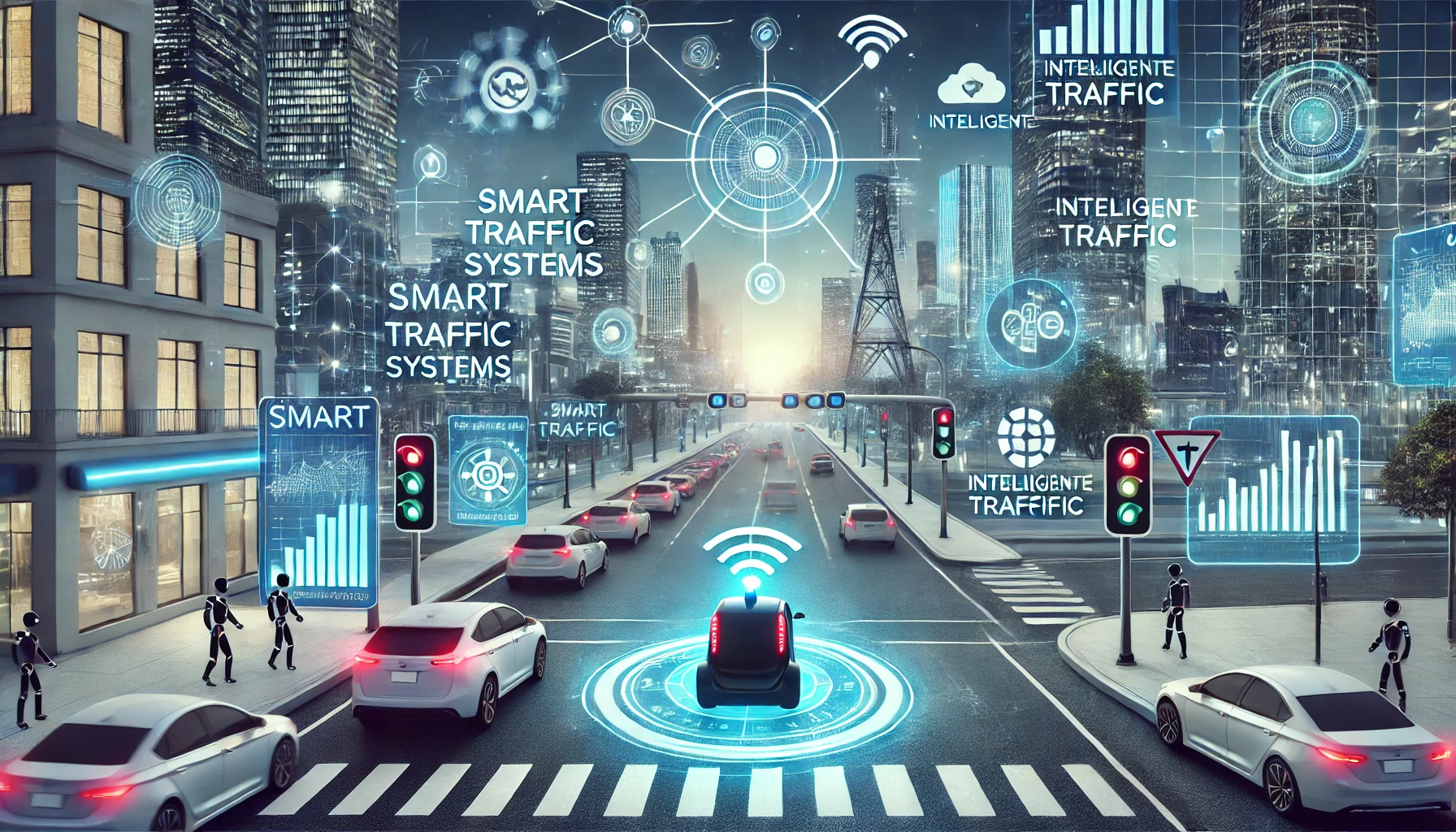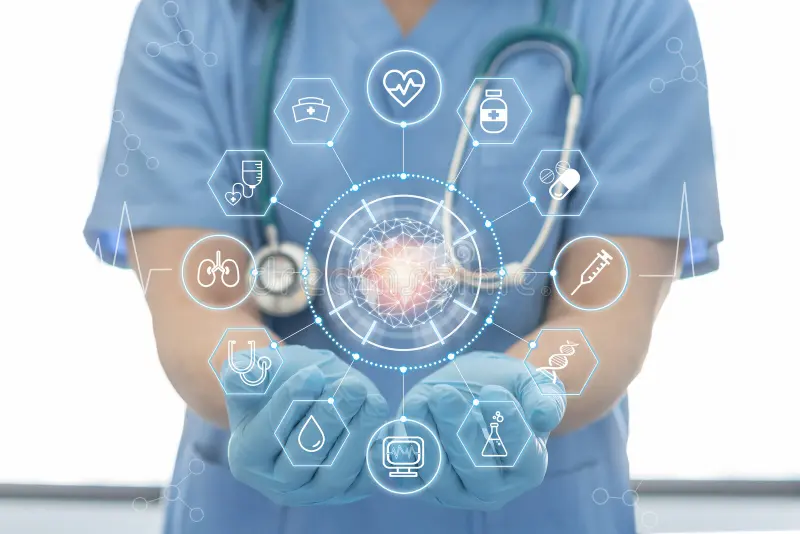The rapidly connective world relies on global traffic technologies for leading the transformation of transportation systems. New smart traffic systems coupled with analytics software and self-driving vehicles and linked infrastructure modify existing methods of transportation control between urban areas and metropolitan systems worldwide.
Urban population expansion combined with worsening traffic congestion demands the need for effective and sustainable and intelligent traffic management systems to an all-time high. The worldwide traffic solutions provide functionality which makes traffic run more effectively while decreasing carbon emissions while strengthening safety measures and improving traveler transportation conditions.
The following blog examines modern worldwide traffic technologies through their advantages along with their transformative impact on worldwide transportation methods.
What Are Global Traffic Technologies?
Advanced tools and systems within global traffic technologies handle the monitoring and control and management activity of transportation network traffic flows. These technologies seek to enhance traffic management operations along with safety and efficiency together with sustainability performance in order to tackle expanding urban centers and increasing congestion problems.
- The main components of global traffic technologies include:
- Continuing operations of Intelligent Traffic Systems (ITS) consists of traffic monitoring tools including sensors and cameras and analysis software which aids drivers and city planners with real-time traffic data.
- Connected infrastructure provides traffic management excellence by uniting transportation systems with V2I information sharing components along with IoT technology which establishes a unified traffic monitoring system.
- Self-driving vehicles referred to as Autonomous Vehicles (AVs) maintain contact with traffic systems to promote safer roads combined with smoother traffic flow.
- These modern transportation technologies improve road security and efficiency through efficient fuel use and minimal pollution emission control.
Multiple worldwide traffic technology solutions currently shape modern industry operations.
1. Intelligent Traffic Signals and Smart Traffic Lights
Intelligent traffic signals represent one of the most influential innovations that global traffic technology has seen. Traditional traffic signals need preset timer controls or sensor activation because of which they produce inefficient traffic patterns particularly when many vehicles are present. Modern intelligent traffic management systems process instant electronic data collected from cameras and GPS devices along with sensors to change light operations dynamically.
These systems adapt their functionality to match current traffic conditions involving waiting vehicles and pedestrians to decrease congestion and enhance overall traffic movement.
The effective management of traffic lights across intersections powered by intelligent operations results in better traffic safety by decreasing the frequency of accidents.
Smart traffic systems in Singapore together with Los Angeles operate with predictive analytics and machine learning to handle traffic signals for reducing waiting times and better traffic management.
2. Vehicle-to-Infrastructure (V2I) Communication
V2I communication functions as an essential element for deploying smart cities together with global traffic technologies. This system lets vehicles exchange information with traffic management components like traffic signals and road signs together with sensing equipment. This communication method lets vehicles access detailed real-time information about roads and traffic signals as well as possible dangers.
V2I systems improve traffic coordination by allowing vehicles to exchange data with traffic signals that helps intersections function smoothly and decreases traffic density.
Vehicles receive warnings about approaching conditions such as traffic situations and accidents or roadworks which enables drivers to prevent incidents.
Different cities implementing V2I technology systems will unlock coordinated traffic operations that drive down journey times while raising roadway safety across the board.
3. Autonomous Vehicles (AVs)
Autonomous vehicles originated as one of the most advanced technologies developed for global traffic systems. The cars operate autonomously to drive along roads and follow traffic signals at the same time integrating with vehicles and transport infrastructure systems automatically. Modern advances in AV technology prompt traffic management systems to adapt their operations for vehicles that drive themselves.
Autonomous vehicles decrease accidents occurring through human mistakes because drivers are not required to be physically present behind the wheel. Hence roads become safer for everyone.
The coordination between autonomous vehicles which uses smart traffic lights and teaches AVs to control their speed and position can create better and synchronized roadway operations.
The electric nature of Autonomous Vehicles promotes efficiency so operators can decrease carbon pollutants and reduce their power requirements.
Several nations conduct tests with AV technology because they aim to incorporate this technology into their traffic systems when complete self-driving vehicles become ready for deployment.
4. Real-Time Traffic Data and Predictive Analytics
Traffic management benefits significantly from predictive analytics together with real-time traffic data. The combination of sensors with GPS information and applications from mobile devices enables traffic management systems to determine traffic routes as well as find congestion areas while offering route modification suggestions to drivers. The gathered information gives cities the power to create better vehicle and public transportation pathways that decrease transit time and improve complete flow management.
Through smart routing technology drivers obtain immediate route recommendations showing the fastest way to evade traffic congestion and road obstruction which shortens their travel period.
The combination of predictive analysis makes it possible for municipal city managers to supervise crowds throughout emergency events which in turn reduces congestion and enhances safety.
Real-time traffic information enables authorities to create emergency paths that benefit in speeding up rescue operations.
Waze together with Google Maps serves as two of the widely used apps that leverage real-time traffic data to provide users with recommended optimal routes while also alerting them about current road conditions. More cities select similar networked systems to improve their traffic operations.
5. Smart Parking Solutions
Global traffic technologies also contain smart parking solutions among their essential aspects. These systems collect data through sensors and perform analytics to determine instant parking location availability which drivers can use to find suitable spaces. The new technology takes away the need to search for parking spots thereby decreasing traffic jams in crowded cities.
Automatic parking direction systems through smart solutions help drivers find available spots and eliminate waste of time searching for empty parking spots.
Smart parking solutions decrease traveling time spent finding available spots which results in lower vehicle emissions together with decreased fuel consumption.
The implementation of parking management systems allows the system to avoid overcrowded zones through traffic distribution improvements.
Smart parking systems have been implemented throughout major cities including New York and London along with San Francisco due to their parking troubles.
Global Leaders in Traffic Technology Solutions
1. Siemens Mobility
As a world-leading company in traffic management Siemens Mobility provides its customers state-of-the-art solutions for developing smarter cities. The company offers three main components for traffic optimization and safety enhancement which include connected infrastructure and intelligent traffic controls and transportation analytics solutions. Siemens operates as a major participant in the establishment of smart traffic systems at cities throughout the world.
Siemens supplies traffic control systems with automatic signals while offering continuous traffic observation tools that help authorities handle congestion and protect road users.
Siemens directs its attention toward developing sustainable transportation methods for system integration between public transit and autonomous vehicles as well as various transport modes.
2. IBM Intelligent Transportation Systems
IBM stands as a prominent worldwide leader in traffic technology development because its core interests lie in advanced city systems and transportation system controls. The traffic management solutions offered by IBM consist of web-based data systems supported by predictive capabilities and unified information platforms that optimize city transport flow and minimize jams.
The traffic solutions provided by IBM include their platforms for smart management systems together with data prediction saturation analytics and smart decision resources.
IBM delivers solutions which combine AI and big data features to improve operational efficiency and traffic system optimization as well as safety throughout its focus areas.
3. TransCore
As a transportation technology solutions company TransCore provides global services for tolling systems and traffic management and smart mobility. The company develops progressive systems that control traffic flow and toll operations and protect roads through instant data analysis.
TransCore provides their clients with three key solution groups which include smart toll systems and traffic sensors together with integrated mobility platforms.
The company TransCore maintains strong dedication to enhance transportation safety and operational efficiency through advanced technology solutions that integrate data operations.
4. Traffic Technology Services, Inc. (TTS)
Traffic Technology Services remains as a leading organization in traffic technology that develops innovative solutions to advance traffic management and observe road safety and keep track of infrastructure conditions. The company delivers immediate data collection tools alongside analytical instruments which enable cities to reach better traffic optimization and decrease congestion.
The company TTS delivers smart traffic signals in combination with real-time monitoring systems that provide worldwide solutions for smart urban infrastructure.
The primary activity of TTS involves raising traffic system efficiency by utilizing predictive analytics and real-time data processing.
Conclusion
Global traffic technologies will improve in strategic importance as cities expand their population base and traffic congestion worsens. Transportation and traffic management undergo radical changes because intelligent traffic lights pair with autonomous vehicles and real-time data analytics along with smart parking solutions.
Modern traffic solutions establish transportation systems that enable more secure and environmentally friendly mobility systems which help users along with the ecosystem. Enhancements in technology will enhance the outlook for global traffic technology through systems that offer better efficiency and reduced congestion as well as improved urban living quality.
These innovations enable worldwide cities to enhance their traffic management functions while building up the future transportation systems of tomorrow.





